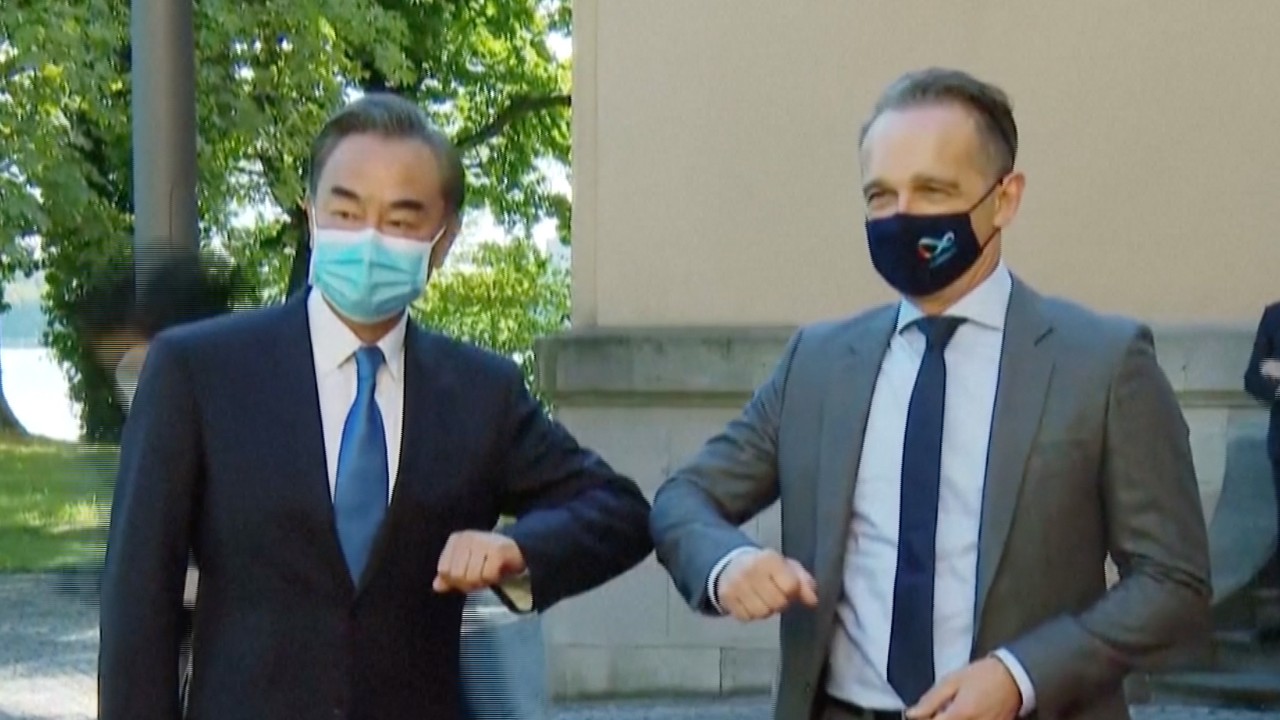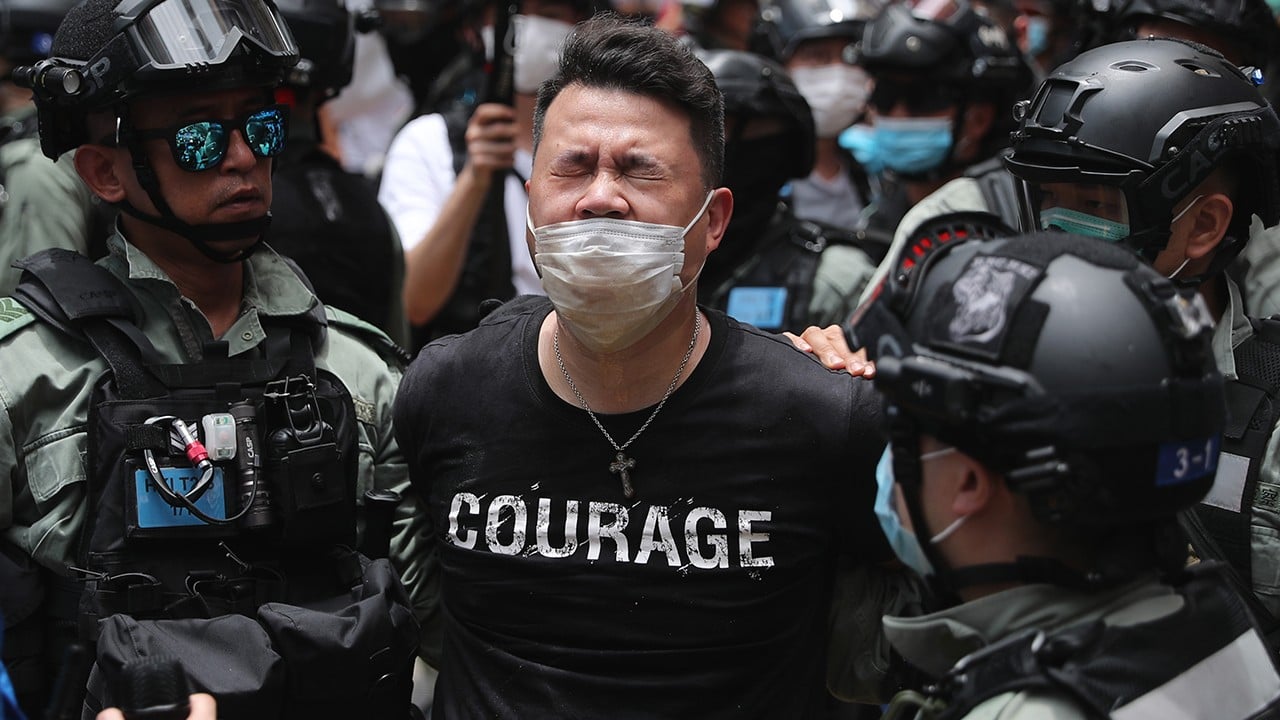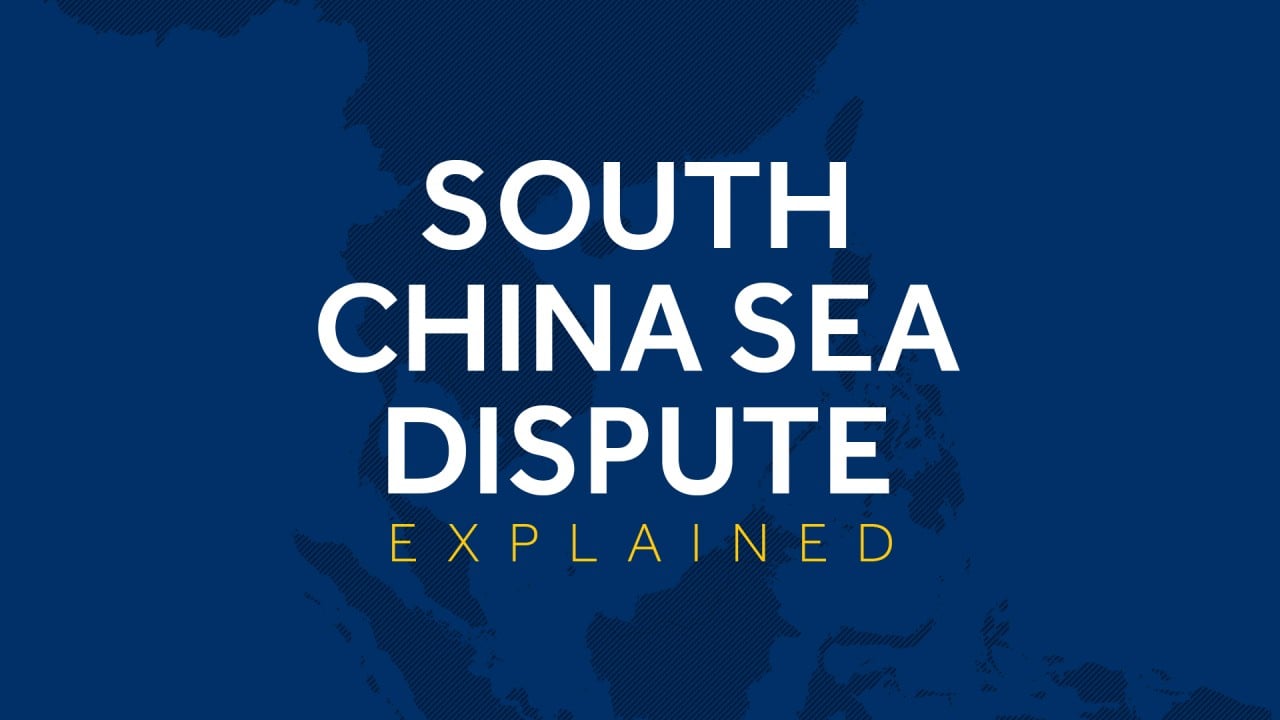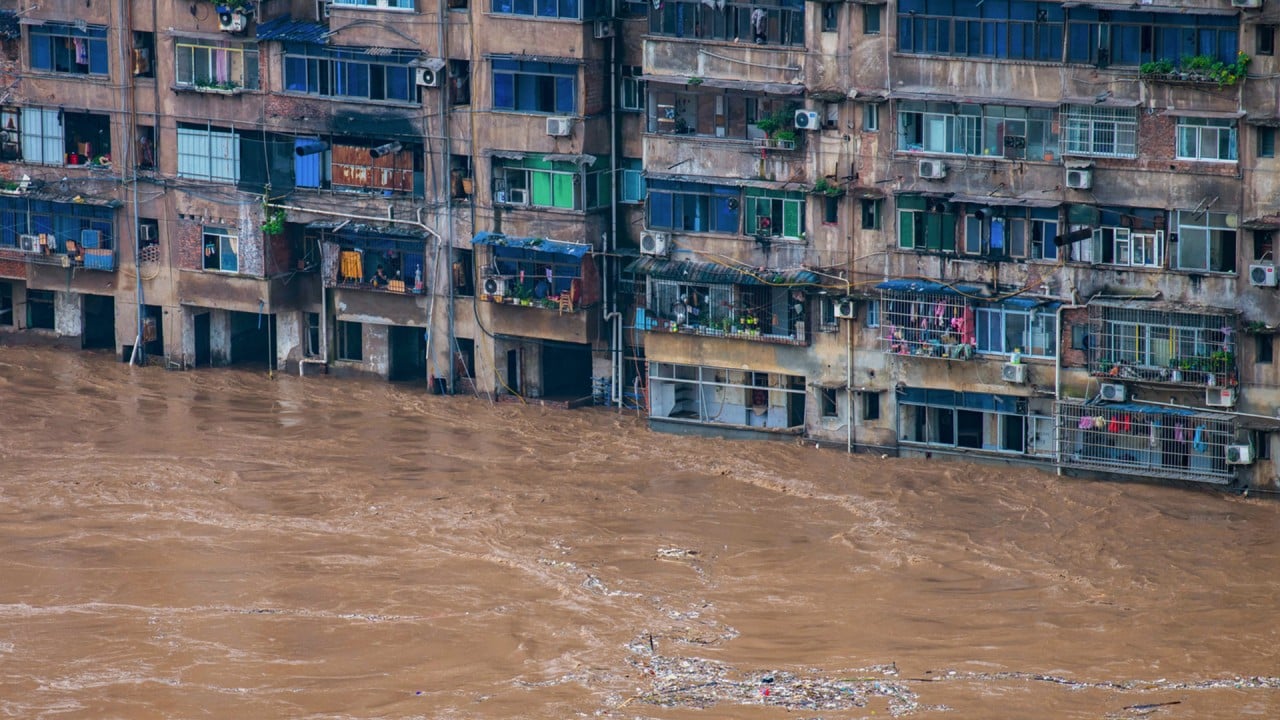
In his own words: German ambassador to China on Hong Kong, the economy and the Indo-Pacific
- Berlin’s China envoy Clemens von Goetze reflects on a challenging year for bilateral relations and the future outlook
- Climate change, the coronavirus response, human rights and regional conflicts have been at the forefront
Overview and outlook
Q: What’s your overview on bilateral relations and what is the outlook for the post-Merkel era?
A: We have developed a broad and comprehensive relationship with China in different fields over the past 40 years. Economic cooperation has been expanded exponentially. China is Germany’s largest trading partner.
More than 5,000 German companies are operating in China, employing a workforce of over one million and investing substantially. More investment is on its way. Meanwhile, Chinese companies have also invested in Germany to cover the European market.
Coronavirus: Germany questions need for extra test for China flights
We have more than 80 dialogues on political, economic, scientific and cultural issues with China. Our political leaders have had intense exchanges over the years, including at the highest level, on a very regular basis. We would like to continue and further expand these exchanges.
We are very well aware that defining global challenges such as climate change and regional conflicts in other parts of the world will require us to strive for common answers with China.
Our bilateral relations are always embedded in our membership of the European Union. Germany acts also in solidarity and in close coordination with the European institutions and with our European partners.
The EU has developed a very active and strong relationship with China. We believe that we have to base our economic cooperation in the future on the principles of openness, fair competition and reciprocity. On that basis, we are most willing to deepen it further.
China-EU decoupling not an option but Beijing must step up on markets, human rights, virus: German envoy
Human rights
Q: China and Germany, as well as the EU and other member states, have clashed on human rights issues, including the national security law and its enforcement in Hong Kong and human rights issues in Xinjiang. How have the disputes affected bilateral relations and German companies’ business decisions in China?
A: As you mentioned, not everything is rosy in our relations. We have different political systems and values. Our political systems have not converged over the years, but quite the opposite. In our partnership with China, these political differences have to be discussed in an open manner.
We have repeatedly addressed issues over Hong Kong and Xinjiang, together with our European and international partners.

02:56
Germany presses China on Hong Kong security law, seeks access to Uygurs in Xinjiang
In the third Committee of the UN General Assembly, we called on China to respect human rights, particularly the rights of persons belonging to religious and ethnic minorities, especially in Xinjiang and Tibet, and to uphold the autonomy, rights and freedoms of Hong Kong.
This is not only something that concerns our German-Chinese relations, but Europe as a whole.
We have expressed through the EU High Representative in a recent declaration that the disqualification of opposition members of Hong Kong‘s Legislative Council is a further severe blow to the political pluralism and freedom of opinion in Hong Kong.

19:35
Hong Kong protests – China’s Rebel City: Part 4 – Protests Muzzled
Our objective remains to keep the principle of one country, two systems with autonomy for Hong Kong, with political pluralism and the freedom of opinion guaranteed, and that China keeps the obligations made in this respect. And we will continue to engage in that direction.
German business is very well aware of the importance of human rights. We are a values-based democratic system and we do expect our business companies to respect and protect human rights. To ensure this, German companies have developed corporate social responsibility guidelines for themselves.
As a country, Germany has implemented the United Nations’ guiding principles on business and human rights in its National Action Plan on Human Rights, requiring German companies to exercise due diligence in their supply chains. So they will look for supply chains to ensure their standards of corporate social responsibility have been met.
Beijing invites EU leaders to ‘see real situation in Xinjiang’
Coronavirus control
Q: China has tightened the screening requirements on inbound flights amid a set of restrictive measures to prevent the Covid-19 virus coming from abroad. How do you view the measures and what are the prospects for joint cooperation to address the public health crisis?
A: China has remained vigilant and introduced new requirements to keep the number of cases from abroad as low as possible. We understand the need for necessary measures, but we believe any new requirements that make travel – and hence business – between our countries even more difficult should only be introduced when epidemiologically really necessary.
China is now requiring antibody blood tests, but according to the World Health Organization, these antibody blood tests are a poor predictor of active infections.
China’s rising nationalism, pandemic handling shape its EU reputation
Another critical point is that the Chinese regulations are mandating the isolation of infected children from their parents, which we regard to be out of proportion. The parents should be allowed to accompany the child and not leave the child alone in quarantine for 14 days or even longer in hospital.
We have conveyed our concerns to the Chinese government that the antibody tests and separation of children from parents are not necessary, but we have not received an answer yet that these rules would be changed.
There has been, and still is, a lot of cooperation between China and Germany to fight Covid-19 since the early days of the pandemic, both in China and Germany.
Both countries are heavily involved in the development of vaccines. Both of us are at the forefront of medical research on development of new vaccines. We have also both joined Covax. It’s a very clear example of the need for true multilateral cooperation. Germany has already contributed 675 million euro (US$805 million) to the ACT [Access to Covid-19 Tools] Accelerator.
It will be the biggest vaccine distribution plan ever – but can it work?
The Indo-Pacific region
Q: Germany unveiled Indo-Pacific guidelines in September to diversify engagement in the region including in trade, technology, human rights, security and connectivity, making it the second EU member to issue an Indo-Pacific strategy, after France.
German Defence Minister Annegret Kramp-Karrenbauer said in November Germany would send a frigate to patrol the Indo-Pacific from next year. How will the patrol be conducted? Will Germany seek a stronger foothold over security issues in the Indo-Pacific?
A: The Indo-Pacific guidelines take a holistic approach to the region, which is gaining importance globally in economic terms, but also when it comes to global issues such as security policy, digital transformation, rules-based global trade order, climate change and environmental protection.
China is a ‘systemic challenge’, Germany’s defence chief says
The military cooperation between Germany and the states in the region is nothing new and the presence of the German navy has contributed to stability to the region. The German navy has in the past, and will in the future, hold regular excursions into the region.
Navigation in international waters is free. The United Nations Convention on the Law of the Sea is of very high importance to us, and that includes related decisions of arbitration courts.
We have not yet worked out the exact route for the frigate and there will be navy ships coming on a regular basis and they will take different routes and operate on their own.

03:23
The South China Sea dispute explained
Huawei Technologies
Q: What is Germany’s position on Huawei? Will it announce a ban on 5G market access for the company?
A: Our new telecommunications law is not yet completed, but is expected to be passed before the election next year. It will define criteria independent of specific companies and independent of specific countries.
It is very clear that telecommunications infrastructure like 5G is most important for our security. The telecommunications law will take our security needs very strongly into account, but it will apply to all companies in all countries.
CAI and the Biden factor
Q: What is the progress of negotiations for the China-EU investment treaty, formally known as the Comprehensive Agreement on Investment? Which issues are difficult to reach consensus on? Will the looming Biden administration affect the EU position in dealing with China?
A: China’s economy is highly innovative and creative, and Chinese companies now are world class competitors. It means we cannot accept unequal treatment in competition. A level playing field for our companies should be guaranteed.
That is why we have to insist that the Chinese market is as open for European companies as the European market is for Chinese companies, that they are not disadvantaged in competition and that they have the same chance to participate in public tenders as Chinese companies. These are essential points and that‘s exactly what we want to achieve in the negotiations.
European leaders call for unity with US against China
The EU negotiators are working hard together with their Chinese partners to conclude this agreement, if possible by the end of the year.
It is now rather a question of being able to take the last steps towards finding a compromise. I don‘t see that the elections in the US would have changed our negotiating positions.
The EU and Germany have and do pursue policies both towards the US and China that are based on our own German and European interests and values.
With the US, we have historically a very close relationship that dates back to the liberation of Europe from the Nazi dictatorship and post-WWII reconstruction. We are both members of Nato, which Germany joined in 1955. The US is also our biggest export market and a very important security and value partner.
What effect will a Biden presidency have on China-EU investment talks?
Also with China, we have developed close and good relations over the past 40 years and it is rather clear that for Germany and Europe a decoupling between China and Europe is not in our interest. Together with China, we want to work on common solutions for global challenges like fighting climate change and shaping global trade relations. That is our position and will continue in that way.
We want a world trade system where trade is as free as possible, where our companies can operate in a fair competition worldwide. This is something we express towards all our international partners, including both the US and China.
If the investment agreement could be concluded soon, this would reassure about the earnestness of China to remain open.

06:04
US-China relations: Joe Biden would approach China with more ‘regularity and normality’
Climate Change
Q: China announced the ambitious target to become carbon neutral by 2060. What are the prospects of China-EU collaboration on fighting climate change? How do you see Joe Biden’s pledge to rejoin the Paris Agreement?
A: China’s announcement is an important step forward and it will require a lot of practical measures. We‘ll see which measures will be announced when it comes to the specific details of the new five-year plan. And we’ll have to see how China implements that.
Climate change is an enormous task both for China and us. We have a long-standing partnership with China to work on issues like climate change, renewable energies and energy efficiency. It is clear that we will have to use the best technology to decarbonise our economies. Many German companies are already active in the Chinese market and contribute to this goal.

02:23
Bundled up for summer, European glaciers covered with blankets to slow melting from climate change
We have a strong interest in working jointly. If China and the European Union, as two major economic regions of the world, work together ambitiously to fight climate change, that is a very important signal for the rest of the world.
North America, Europe, East Asia, are of utmost importance because they represent a major part of all the economic power of this world, but also of the pollutants.
If the US would rejoin international efforts to fight climate change, that’s most welcome. But I don’t see that this contradicts the ongoing cooperation between Europe and China. We have to gain as much support worldwide as possible to fight climate change.

03:53
Why has flooding been so severe in China this year?
The German presidency
Q: German Chancellor Angela Merkel said China was a main focus of the German presidency of the European Council in the second half of 2020. Has the focus been compromised by the coronavirus, and can we expect the conclusion of bilateral investment treaty talks by the end of this year?
A: The coronavirus pandemic has had a serious impact on our presidency and very much changed our original plans. Instead, we had to manage the coronavirus spread and address the severe economic consequences for the European Union and its member states.
Nevertheless, we have tried to develop our relations with China further. On the bilateral investment treaty talks, the differences have narrowed and we have reached consensus on several parts of the agreement.
As always in negotiations, nothing is agreed until everything is agreed. Whether the deal can be reached by the end of the year depends on the political will of both sides to find the necessary common ground.

